#thomas edison
Explore tagged Tumblr posts
Text
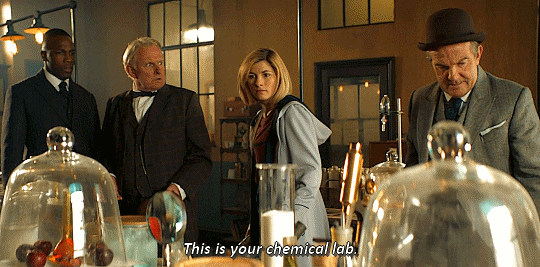
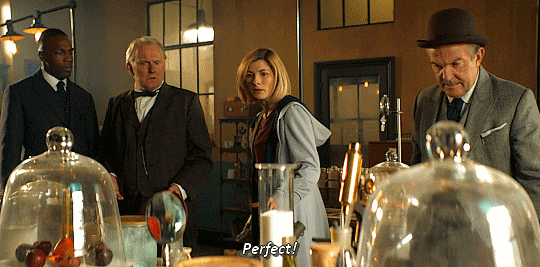


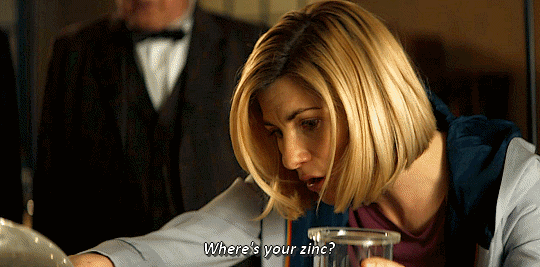
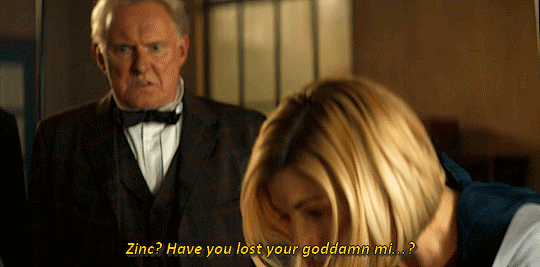

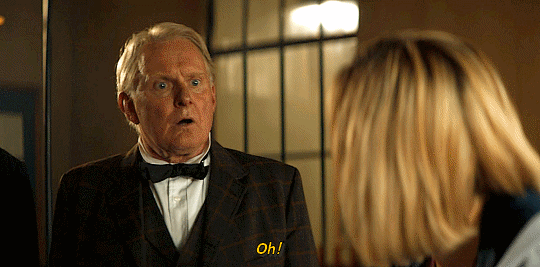
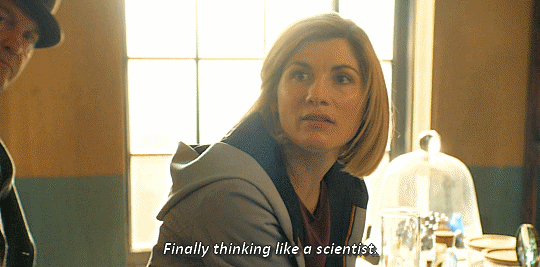
thirteen's era appreciation: 337/?
#dwedit#timelordgifs#chibnalldaily#doctorwhoedit#doctor who#the doctor#thirteen#thirteenth doctor#thomas edison#ryan sinclair#graham o'brien#nikola tesla's night of terror#jodie whittaker#robert glenister#tosin cole#bradley walsh#13seraappreciation#my gifs#thirteen*#ryan*#graham*
2K notes
·
View notes
Text

#Here is a List of Problems#Ol’ Chet#Thomas Edison#volcano#werewolf#werewolves#Noodle war#fish#ichthyology#half-mustache#bee’s knees#bees#bat#bats
249 notes
·
View notes
Text
Fan Theory: Alastor had a rivalry with Thomas Edison (yes, really) in the 1920s

I originally had a whole theory typed up with lots of evidence for this, but my computer crashed and deleted all of it, so here are some of the basic points of the theory that I came up with:
Alastor grew up in the early 1900s, when the phonograph, invented and sold by Thomas Edison, was the main form of music recording and playing in the United States. Alastor was likely called a "gramophile", or gramophone enthusiast "who eschewed a wife and children to focus on music", as he was an asexual during this era. However, radio started to replace phonographs in the 1920s-1930s, cutting into Edison's profits, to his frustration.
Alastor was a popular radio host in the 1920s-1930s, and was one of the main reasons why people were buying and using radios, instead of Edison's phonographs and records, to play music. If people could listen to music for free on the radio, why would they buy Edison's phonographs? (Alastor was quite smug about this.)
The quality of music on the radio was often better than on Edison's phonographs and recordings, as many radio shows provided live music, which means inviting the band and musicians to play live on-air. It wasn't something that could be mass-produced for profit, also to Edison's consternation.
Alastor's specialty was jazz, a form of music originally "invented by, and for, the phonograph". (He also dabbled in blues as well.)
Unlike Edison and other phonograph and record producers, who were often racist and used what is called "digital blackface" today (i.e. pretending to be Black in recordings, because hiring Black artists over white artists was unthinkable), Alastor was an authentic mixed-race Creole host, though likely "white-passing".
Vox seems to be based, at least somewhat, on Thomas Edison, particularly as Edison didn't just formerly control the music industry with the phonograph, but also the movie industry, with one source stating that 75% of Americans in the 1920s went to the movies "every week". (Edison sold his film studio in 1918.)
Alastor seems to have a special disdain for Vox and his "picture show", all movies and TV shows. My guess is that this came from his disdain for Edison Pictures and the movies vs. radio rivalry.
Edison died at the age of 84 in 1931 from old age and diabetes complications, whereas Alastor was killed in his 30s-40s in 1933.
As an edit, here is Part 2 of this fan theory with a lot more evidence.
#hazbin hotel#alastor#hazbin hotel alastor#alastor hazbin hotel#hazbin alastor#alastor hazbin#alastor the radio demon#thomas edison#hazbin hotel theory#human alastor
1K notes
·
View notes
Text

104 notes
·
View notes
Text

🎯
AGGIORNAMENTO AL POST.
Mi si fa giustamente notare che Edison non è certo un esempio di integrità da seguire o da valutare come capacità valoriale.
Per mia formazione non sto più quasi a guardare chi dice cosa, mi soffermo sul contenuto, salvo che l'analisi non sia verso la persona stessa. A volte lo sottolineo come qualche post precedente, altre volte non ci penso.
Capisco che scindere la persona dal contenuto non è sempre automatico e molte volte non va nemmeno fatto, tuttavia tante teste di c. hanno dato input e visioni efficaci nel corso della loro vita distorta.
Quindi è sempre bene considerare i pensieri d'altri come sintesi utili per creare ragionamenti ed esprimere conoscenze più profonde, ma servono per il messaggio che portano e non per legarsi alla maschera che le dice.
#zombie#società#società malata#svegliatevi#aprite gli occhi#sistema#verità#citazioni#potenziale#consapevolezza#sè#coscienza#crescita personale#crescita interiore#thomas edison#discernimento#conosci te stesso#universo#connessione#sè superiore#opportunità#possibilità
68 notes
·
View notes
Text








A collection of my FGO shitposts
#som.txt#fgo#kiyohime#shakespeare#voyager#ozymandias#sherlock holmes#medb#cu chulainn#jalter#jeanne d'arc#ashiya douman#miyamoto musashi#hans christian andersen#thomas edison#utsumi erice
650 notes
·
View notes
Quote
Many of life's failures are experienced by people who did not realize how close they were to success when they gave up.
Thomas Edison
#Thomas Edison#motivation#quotes#poetry#literature#relationship quotes#writing#original#words#love#relationship#thoughts#lit#prose#spilled ink#inspiring quotes#life quotes#quoteoftheday#love quotes#poem#aesthetic
69 notes
·
View notes
Text

vote for medb!
#my edit#my art#fgo#arjuna#cu alter#medb#thomas edison#karna#helena blavatasky#my comic#ehhh kind of
328 notes
·
View notes
Text

On February 19, 1878, Thomas Edison was awarded U.S. Patent No. 200,521 for his invention—the phonograph. #OnThisDay
39 notes
·
View notes
Text
"Başarısız olmadım. Sadece işe yaramayacak 10.000 yol buldum."
37 notes
·
View notes
Text





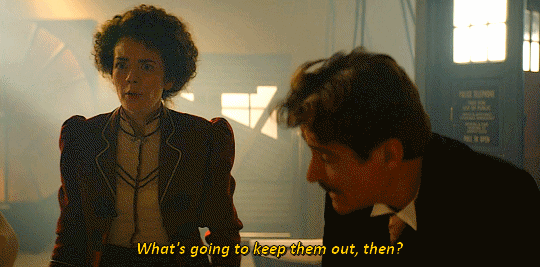





thirteen's era appreciation: 510/?
#dwedit#doctor who#the doctor#thirteen#thirteenth doctor#yasmin khan#graham o'brien#ryan sinclair#nikola tesla#dorothy skerritt#thomas edison#nikola tesla's night of terror#jodie whittaker#mandip gill#bradley walsh#tosin cole#goran višnjić#haley mcgee#robert glenister#13seraappreciation#my gifs#thirteen*#yaz*#graham*#ryan*
94 notes
·
View notes
Text
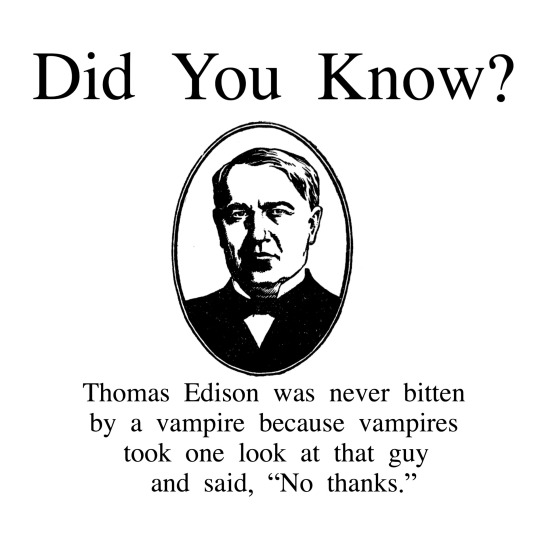
775 notes
·
View notes
Quote
Many of life's failures are experienced by people who did not realize how close they were to success when they gave up.
Thomas Edison
#Thomas Edison#motivation#quotes#poetry#literature#relationship quotes#writing#original#words#love#relationship#thoughts#lit#prose#spilled ink#inspiring quotes#life quotes#quoteoftheday#love quotes#poem#aesthetic
100 notes
·
View notes
Text
Remember that one fan theory I wrote about Alastor having a rivalry with Thomas Edison in the 1920s? Well, I decided to do a bit more research; it turns out that, not only was I right, but Edison really hated radio. He loathed it so much that he wrote not one, but several articles railing against the "radio fad" in 1926, to the point where an anonymous person wrote "letters to the editor" to argue with Edison.
Gee, I wonder who it could be doing that in the Hazbin-verse? /s
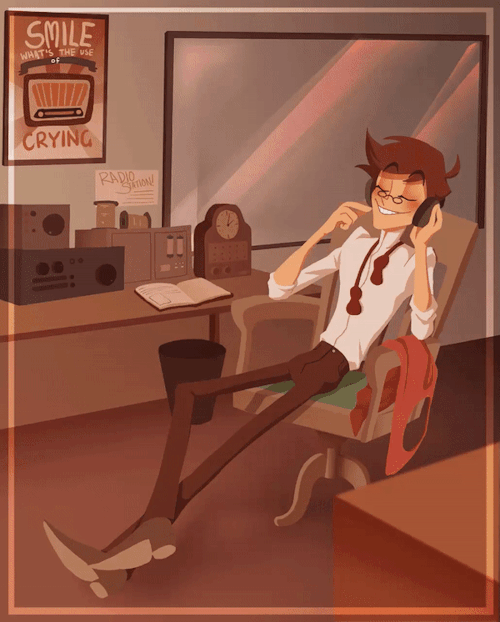
GIF and art originally by karumkin on Twitter/X (2019).
There was also a slew of increasingly aggressive telegrams sent back-and-forth between Edison and radio proponents, with Edison penning thinly-veiled insults that offended even mild critics of the "Wizard":
"The radio is a commercial failure, and its popularity with the public is waning. Radio is impractical commercially, and ethically distorted, and is is losing its grip rapidly in the market and in the home. There is not 10% of the interest in the radio that there was last year.
Radio is a highly-complicated machine in the hands of people who know nothing about it. No dealers have made any money out of it. It is not a commercial machine, because it is too complicated. Reports from 4,000 Edison dealers who have handled radio sets show that they are rapidly abandoning it; and, as for its music, it is awful.
I don't see how they can listen to it. Thousands of people have signed a petition asking that sopranos be kept off the air. Of course, most of them don't know that the soprano voice distorts the radio. The phonograph is coming into its own because people want good music. The fact is that the radio never had a high peak of popularity.
In towns where 25 or 30 dealers were handling radio sets, only one or two are now handling them. A farmer 5 miles from town buys a radio, perhaps on the installment plan. A wire becomes loose. The dealer has to arrange to fix it. This happens time and time again. The business becomes unprofitable for the dealer to engage in. He does not make any money out of it. None of them has. They are giving it up as fast as they can. It is not a commercially successful machine, because it is too complicated.
Static is awful, and the difficulties of tuning out--and now, they're stealing each other's wavelengths! It is too bad that the radio has to be too complicated. It was a big and interesting thing, and the people responded to it, but they want good music, and they found it is not to be had on the radio. That is why the phonograph is reclaiming its own."
Quote from "Edison and Radio", Radio News, December 1926, "in which the Editor takes issue with Mr. Edison's claim that radio is a failure; yet it is pointed out that the radio industry owes Edison a great debt; wherein facts are figures are given to show that radio is on a steady increase; granting that neither radio, nor the phonograph, is yet perfect; how the interest in radio is steadily increasing, and radio dealers are now making good money":
"Since the publication of the famous interview with Mr. Edison, the press, and particularly the radio press across the entire country, has been more or less agitated...I do believe that Mr. Edison has not been recently in-touch with radio sufficiently to appreciate fully the tremendous advances that have been made. Mr. Edison is a busy man, and a tremendously busy inventor. It would be well-nigh impossible for him to be in-touch with all of the various commercial phases of radio all over the country; and, like other executives, he obtains his reports from his subordinates, and such reports often as not may be highly colorful, and even wrong...[thus, the radio industry is unwilling to accord Mr. Edison anything]...as to Mr. Edison's remarks, the statements that follow are facts, which can be checked up by anyone who is unbiased."
Imagine Alastor and Vox with "Stayed Gone" in Episode 2, and Alastor and Lucifer with "Hell's Greatest Dad" in Episode 5, but happening entirely over letters and telegrams, because mass media and television didn't exist yet. The closest musical numbers would likely be "Farmer Refuted" and "Your Obedient Servant" from Hamilton.
Per the book The Wizard of Menlo Park: How Thomas Alva Edison Invented the Modern World by Randall E. Stross:
Page 276: "[Edison's] phonograph business faced a challenge in the 1920s unlike any that had come before: the advent of commercial radio stations, and the wide availability of free music broadcasts and other entertainment. By the end of 1921, an estimated 1 million listeners had access to radios, and listened to programs broadcast from the Eastern seaboard. A single station in Roselle, New Jersey, which offered the voices of operatic stars among its musical programs, had a broadcast range of a thousand miles, covering New England and the mid-Atlantic states, and reaching as far west as Missouri. A contemporary newspaper account explained to readers not yet acquainted with the phenomenon that those who owned radio sets could enjoy entertainment that was 'literally as free as the air'. Charles and Theodore Edison [proposed a combination phonograph-radio]...their father need not feel slighted because the vacuum tube, a key component of the radio set, was a modern descendant of Edison's experimental work on the incandescent lightbulb. Edison did feel slighted, however; such, at least, was the opinion of Thomas Cowan, a former Westinghouse employee...[who conducted experiments in radio broadcasts with the aid of a phonograph Edison was willing to loan him in 1921]. Cowan had several conversations about radio with Edison, who became upset and recalled the loaner when he heard the Westinghouse broadcasts...[Edison's sons were embarrassed, humiliated]."
"Edison calls radio a 'failure for music', thinks phonograph will regain its own": The New York Times, 23 September 1926. Underlining the usefulness of radio for purposes other than musical programs, Edison did tune in to a radio broadcast of the Dempsey-Tunney fight in 1926, which he was too deaf to hear. He had to rely on family members [usually his wife, Mina] to summarize what had transpired at the end of each round.
"Radio satisfactory on bout, Edison says": The New York Times, 24 September 1926. Defending the quality of musical broadcasts, the radio industry offered expert testimony to rebut Edison's claims [in the next week's newspaper]. See: "Broadcasters disagree with electrical wizard", The New York Times, 3 October 1926.
The "radio fad": A few months later, [after much outcry from the radio industry], Edison was willing to grant that radio might not disappear, but he had a new criticism: listeners' aesthetic sense would be damaged. "Undistorted music, in time, will sound strange to those brought up on radio music," he predicted, "and they will not like the real thing." See: "Thomas A. Edison sees a menace for music in the radio", Musician, January 1927.
"Edison's fears [about the Edison Company not succeeding in the radio business] were realized, though it had been Edison's intransigence (refusal to change one's views) that put the company at such a great disadvantage as a late entrant...on 9 October 1929, Charles Edison prepared a report for his father that showed a loss of $1.3 million due to start-up costs for the [Edison] radio...he could not know that, two weeks later, the stock sell-off would begin with Black Thursday, on 24 October, followed by Black Monday and Black Tuesday...a few days later, Thomas A. Edison, Inc., announced that it would cease producing [music] records [altogether], and refit the factory for the production of radios. The announcement was accompanied by a mention of regret, as the phonograph was 'one of Mr. Edison's favorite inventions'."
"An employee reported observing Harvey Firestone tearfully explaining to Edison that the collapse of business due to the stock market crash of 1929, and the Great Depression, meant that he could no longer continue to financially support Edison's laboratory. Edison was heard, sneering, 'He's a Goddamned lightweight.'" ("I saw your fiasco on the picture show, and I just couldn't resist. What a performance! Why, I haven't been that entertained since the stock market crash of 1929, hahaha! ...so many orphans.")
Edison's death at the age of 84 on 18 October 1931 was also, ironically, commemorated through radio broadcasts: "[The next] night, two radio networks, the National Broadcasting Company (NBC) and the Columbia Broadcasting Company (CBC), jointly broadcast an 8-minute tribute that ended on the hour, when listeners were asked to turn out the lights. The White House did so, and much of the nation followed, more or less together, some a minute before the hour, others on the hour. On Broadway, 75% of the electrified signs were turned off briefly. Movie theaters went dark for a moment. Everything seemed connected to Edison: the indoor lights, the traffic lights, the electric advertising, everyone connected via radio, which Edison now received credit for helping to 'perfect'. In the simple narrative that provided inspiration for posterity, one man had done it all..."
Some numbers provided for how much radio was making:
1922: $46.5 million (~$860 million in 2024)
1923: $120 million (~$2.2 billion in 2024) (156% increase)
1924: $350 million (~$6.3 billion in 2024) (186% increase)
1925: $449 million (~$8 billion in 2024) (27% increase)
1926: $520 million (~$9.1 billion in 2024) (14% increase)
Overall, per another source:
1922: $60 million (a little more than the previous statistic)
1929: $842.6 million
From here, we can tell the biggest gain was in 1923-1924. Per another source: "Total cost was about $120.00 to buy a new radio in 1926; in today's money, that is about $1,500 to own a radio." That would mean that 7.6 million radios were sold by 1926; an impressive feat, considering that the United States only had a population of a little over 117 million people at the time.
Percentages of United States households with radios:
1925: 19% (5 million households)
1929: 35-40% (200% increase)
1930: 12 million households
1939: 28 million households
The number of licensed broadcast stations surged from just 5 in 1921 to 500 by 1924, per yet another source. In the early years, household radio ownership was highest in the Northeast and on the West Coast. In large sections of the South, Midwest and Great Plains, stations and radio sets were scarce. However, there were notable exceptions.
There were 732 radio stations total across the country by 1927, and the average radio was on 2 hours and 25 minutes per day. People who couldn't afford radios purchased them on installment loans, through which the full price of a new radio could be paid over time. Radios had even more advertisements for washers, dryers, and refrigerators, causing people to use even more merchant credit and installment loans to purchase these shiny, new technological devices.
However, radio sales also took a hit with the Great Depression, as average income levels fell from $3,270 per year in 1920 ($53,300 in 2024), to $2,300 per year by 1929 ($41,500 in 2024), then to $1,500 per year by 1932 ($35,500 in 2024). However, buying a radio also became cheaper, dropping from a costly $200 ($3,200 in 2024) in the early 1920s, to just $35 ($630 in 2024) by 1929-1930.
By the time Alastor died in 1933, 3.6 million radio sets were sold that year alone. By the mid-1930s, 67% of American households had radio sets, and by 1939, about 80% of Americans—over 100 million people—owned radios. Radios were in almost every house, and some Americans even had radios in their cars. The Golden Age of Radio lasted from the 1930s to the 1940s, before being eclipsed by television in the 1950s. Radio hosts went from being paid $10 per broadcast in 1921 ($180-200, 1-2 hours per night, 3-4 nights a week, for a weekly salary of $720-800; monthly salary, $2,900-$3,200; annual salary, $34,800-$38,400; modern-day annual salary range for a radio show host is $30,000-100,000, depending) to making triple-figure salaries in the later 1930s.
Another source lists the following salary ranges for radio hosts:
$2,500-2,700 a year to be an announcer in 1927* (~$45,000-$48,000 range in 2024)
$2,400 a year to be a dramatic director (~$43,000 in 2024)
$4,000 a year to be a program director (~$72,000 in 2024)
New Orleans' first radio broadcast was on 31 March 1922, with WWL. The station wasn't started as a commercial one; but rather, "more of an experiment, started as an interest in wireless communication picked up nationally". The station did not go commercial until 1929, meaning that Alastor also probably had at least one other side job.
Also see:
"Early Radio Announcers Invented Their Profession in the 1920s"
"The History of the Radio Industry in the United States to 1940"
"'A Godlike Presence': The Impact of Radio on the 1920s and 1930s" by Tom Lewis
American Babel: Rogue Radio Broadcasters of the Jazz Age by Clifford John Doerksen (see excerpt here)
Race and Radio: Pioneering Black Broadcasters in New Orleans by Bala James Baptiste (Note: The earliest Black broadcast in New Orleans was in 1945, meaning Alastor was white-passing.)
"Golden Age of Black Radio - Part 1: The Early Years" (Note: The first Black radio announcer, Jack L. Cooper, hosted in 1929.)
"How African Americans Entered Mainstream Radio" by Bala James Baptiste, the author of Race and Radio: Pioneering...
#hazbin hotel#alastor#hazbin hotel alastor#hazbin alastor#alastor hazbin hotel#alastor hazbin#alastor the radio demon#radio demon#thomas edison#long post#i did a lot of research for this okay
161 notes
·
View notes
Note
Who invented rock & roll?
Thomas Edison is usually credited but he likely stole the idea from Nikola Tesla. Insert AC/DC joke here.
430 notes
·
View notes
